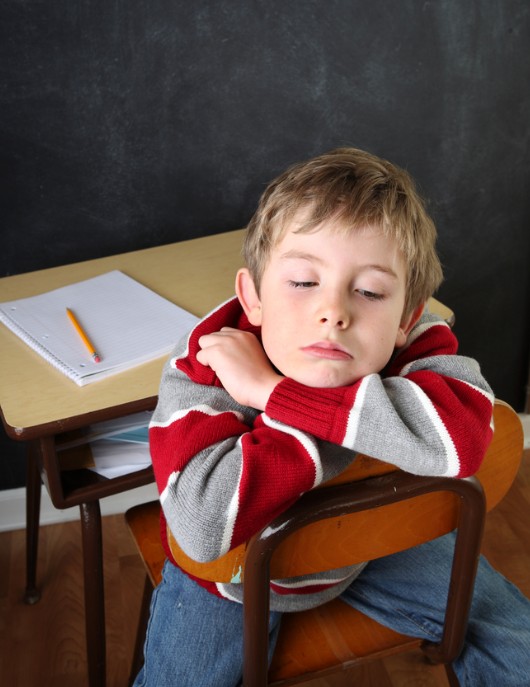Dr. Russell Barkley: Ten Golden Tips for Parents of Kids with ADHD
Why making deals with your child matters, how to prep for challenging situations, and what to do if your child has trouble making friends—ten essential tips from Dr. Russell Barkley, a leading ADHD expert.

Dr. Russell Barkley, an American clinical psychiatrist, is arguably the foremost expert on Attention Deficit Hyperactivity Disorder (ADHD) in the world today. For decades, he has conducted groundbreaking research on ADHD, shaping how children with the condition are treated. Dr. Barkley's work isn't just academic; he also lectures globally, helping both professionals and parents of kids with ADHD. Here are ten invaluable tips he frequently shares with these parents:
1. Your Role: Be a Shepherd, Not an Engineer. Parents can't engineer their child’s behavior. There’s no method or educational approach that will make your child’s ADHD vanish. Instead, think of yourself as a shepherd. Just as shepherds don’t change sheep into dogs, parents can't eliminate ADHD. However, you can protect your kids, provide them proper nutrition, and ensure an ideal environment—vital roles for any parent, especially those with ADHD-affected children.
2. Help Your Child Tackle Time-Related Organizational Issues. Kids with ADHD often struggle with time perception, causing lateness and last-minute rushes. Use timers, sand clocks, and regular clocks placed where they can see them to help them recognize the passage of time. Also, don’t allow procrastination: break down tasks into smaller steps and ensure daily progress, preventing the last-minute panic.
3. Don’t Fear Making Deals with Your Child. ADHD often involves a lack of internal motivation. To help them focus on seemingly dull tasks, like homework or organizing a drawer, provide external motivation. Offer them a worthwhile deal to encourage task completion. This isn’t bribery; it’s providing support for a genuine difficulty.
4. Immediate Consequences Are Key for ADHD Behavior. To encourage desirable behaviors, rewards must be immediate. If your child submits an assignment on time, don't promise a trip at the end of the month—reward them now. The same applies to discipline; address inappropriate actions immediately. Delayed responses weaken effectiveness. ADHD children need to experience immediate consequences.
5. Frequent and Significant Consequences Also Matter. If you've initiated a program to get your child ready for school on time, don’t end with a grand reward after a month. Give out smaller rewards throughout. They need compelling incentives: gifts, privileges, candies, or at least tokens they can quickly exchange for real rewards.

6. Align Your Expectations with Your Child’s Abilities. Maybe your older daughter could babysit at 14, but it's not certain your ADHD child can. Kids with ADHD face significant 'executive function' challenges, often falling 30% behind peers in emotional maturity despite intelligence or talent. Adjust your expectations accordingly. Note: medicinal treatments can close this gap but only while under effect.
7. Prioritize. It’s unrealistic for an ADHD child to adhere to every rule you might hold dear. Focus on your key expectations and drop the non-essential ones. They must wake promptly for school but sidestep battles over bed-making. No hitting, but let the couch-jumping slide. Concentrate your energy on crucial rules: no violence, respect, safety, school standards.
8. Prepare Yourself for Every Situation. ADHD children are notoriously poor at foresight for problematic scenarios. That's where you come in: prepare them. Whether shopping, visiting grandma, or a day at the water park might trigger troublesome behavior, halt beforehand and remind your child of 2-3 critical rules. Have them repeat these back, ensuring understanding, paired with clear statements of potential rewards or consequences.
9. Speak Less, Do More. Kids with ADHD don’t lack comprehension or knowledge—they struggle with execution. So, long explanations and lectures are ineffective. Communicate effectively by approaching them, making eye contact, and speaking briefly and clearly, then act on what you say. If you issue instructions, respond immediately to their behaviors with promised rewards or sanctions. Your actions speak volumes.
10. Want Your Child to Have Friends? Make Your Home Fun. ADHD children often struggle socially due to impulsive—or sometimes even aggressive—behavior. Solution: make your home an enticing place that peers want to visit. Invest in exciting toys, give them freedom within limits, and offer plenty of treats and snacks. Yes, it works.

